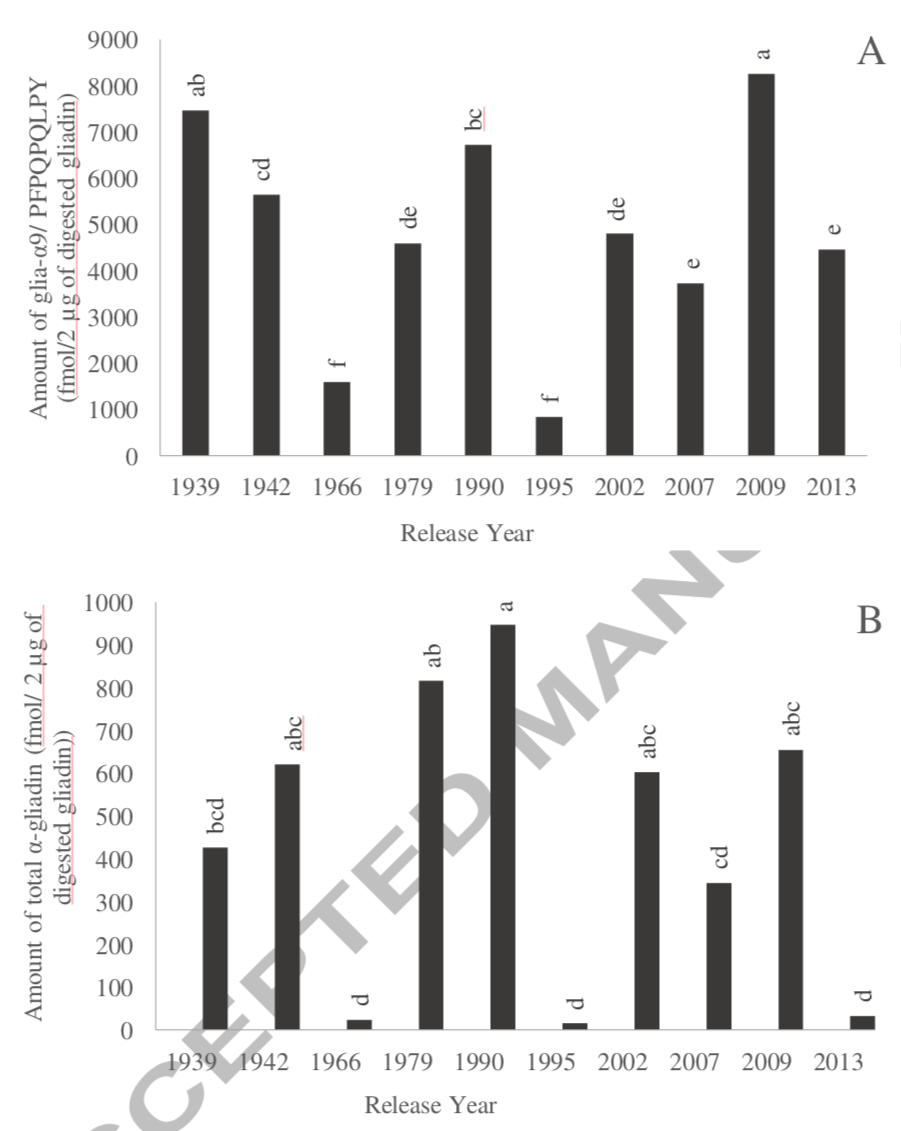Several explanations are possible for what appears to be an increase in celiac disease and/or gluten sensitivity*.
For instance, perhaps human immunogenetics have changed over time due to some unknown evolutionary selective pressure. Alternatively, it is possible that our dietary habits have influenced our immune system, in the same way that our hygienic habits have been linked to an increase in allergies and autoimmune disorders. Or, perhaps there is no increase at all; more people are being diagnosed simply because doctors are now aware the condition exists.
A popular, but unproven, hypothesis blames wheat. Some have claimed that wheat breeding has created varieties of the crop that produce too much gluten. But a new paper, published in the journal Food Chemistry, demonstrates that's not true.
Rootin' Tootin, It's not the Gluten
Gluten is a mixture of proteins, one of which, called α-gliadin, is particularly problematic for people with celiac disease. The portions of a protein that trigger immunological responses are known as epitopes, and we know which epitopes are responsible for celiac disease. So, a team of researchers examined 30 varieties of wheat produced in North Dakota over the past 110 years (from 1910 to 2013) to determine if the amount of these troublesome epitopes increased over time. Gliadin proteins were extracted and subjected to chemical analysis.
Their results are striking. They show that there is no trend in celiac-triggering epitopes isolated from wheat over a 110-year period. (See figure. Each chart represents concentrations of a particular troublesome epitope over time.)

The "blame the wheat" hypothesis predicted that the concentrations of these epitopes has been increasing over time. However, as clearly shown, that isn't the case. The amount of gluten in wheat appears rather arbitrary across time.
Thus, this paper provides solid evidence that the cause of the apparent uptick in celiac disease cases is not because of wheat breeding. So, the search for the real cause continues.
*Note: Gluten sensitivity may not even be real.
Source: Maneka Malalgoda, Steven W. Meinhardt, Senay Simsek. "Detection and quantitation of immunogenic epitopes related to celiac disease in historical and modern hard red spring wheat cultivars." Food Chemistry 264: 101-107. Published online before print. DOI: 10.1016/j.foodchem.2018.04.131




